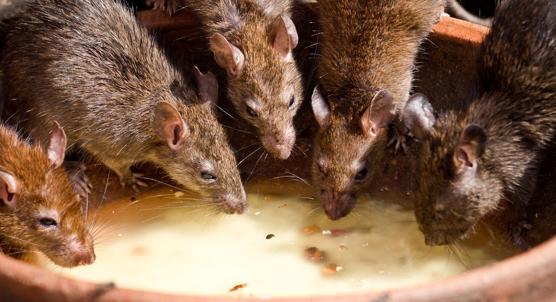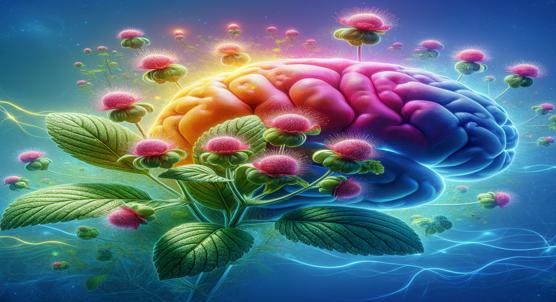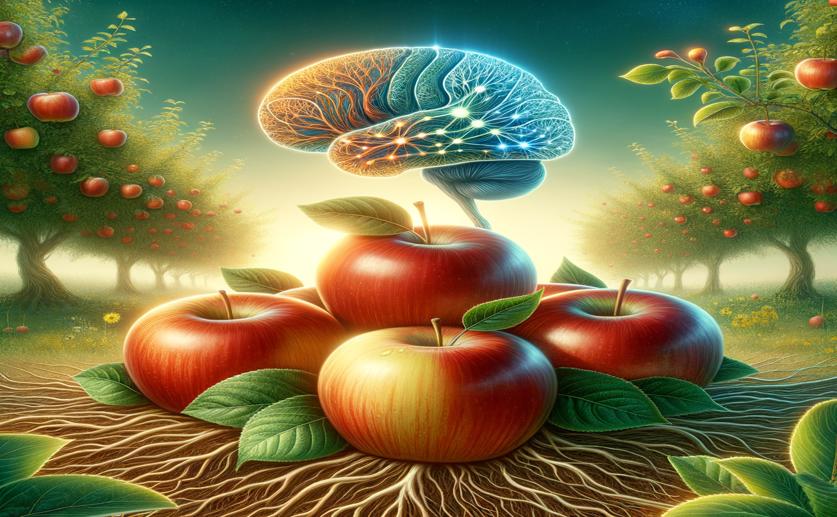
Mental Health News

 30th May, 2024
| Greg Howard
30th May, 2024
| Greg Howard
Eating Fruits and Vegetables in Midlife May Reduce Depression in Later Years
A study by the National University of Singapore reveals that higher fruit intake in midlife can significantly reduce the risk of depressive symptoms in later years, highlighting the importance of dietary choices for long-term mental health.

 15th May, 2024
| Jim Crocker
15th May, 2024
| Jim Crocker
Natural Remedies for Anxiety Relief During Tooth Extraction: A Clinical Study
A study by the Federal University of Parana found that Valeriana officinalis L. and Passiflora incarnata L. significantly reduce dental anxiety in patients undergoing molar extractions, offering a natural alternative to traditional anxiety treatments.

 6th May, 2024
| Greg Howard
6th May, 2024
| Greg Howard
Gotu Kola Extract and Compound Soothe Stress-Induced Depression in Rats
Exploring plant-based remedies, a study finds that Centella asiatica may counteract depression and stress-related changes in the brain from early-life adversity.

 5th May, 2024
| Jenn Hoskins
5th May, 2024
| Jenn Hoskins
How Air Pollution Links to Dementia Over Time in the UK
Exploring air pollution's role in dementia, a Newcastle study found no strong link, challenging prior research and calling for nuanced, lifecourse-focused analysis.

 15th April, 2024
| Jenn Hoskins
15th April, 2024
| Jenn Hoskins
Hop Extract Eases Stress Damage and Depression Signs
Exploring the potential of hop extracts, researchers found they could protect brain cells and reduce inflammation, offering a new dual approach to treating depression.

 3rd April, 2024
| Jim Crocker
3rd April, 2024
| Jim Crocker
Lavender Oil Silexan Helps with Mild Depression
A study reveals that silexan, an oral lavender oil extract, may effectively treat depression, showing similar benefits to the antidepressant sertraline with fewer side effects.

 30th March, 2024
| Jenn Hoskins
30th March, 2024
| Jenn Hoskins
Flavonoids from Skullcap Boost Brain Repair and Memory via Signaling Pathway
A study shows a potential Alzheimer's treatment using Scutellaria baicalensis; it may improve memory and nerve regeneration by affecting key cellular pathways.

 10th March, 2024
| Jenn Hoskins
10th March, 2024
| Jenn Hoskins
How Lavender Affects Mood When Using Birth Control Pills
Research suggests that lavender oil capsules may help improve mood and reduce stress for women on birth control pills without affecting anxiety levels.

 27th February, 2024
| Jim Crocker
27th February, 2024
| Jim Crocker
CBD Oil May Reduce Stress in Dogs
A study found CBD reduces stress in dogs during car travel, with significant behavioral and physiological improvements observed compared to a control group. The implications may be far reaching in terms of expanding CBD treatment beyond humans.

 21st February, 2024
| Greg Howard
21st February, 2024
| Greg Howard
Walks in Nature May Ease Stress for Heart Disease Patients
Exploring the intersection of climate and health, a new study evaluates how different walking environments impact stress responses in heart disease patients during rehab. By monitoring stress indicators, like cortisol levels, and cardiovascular responses to indoor and outdoor exercise, the research aims to enhance cardiac care in the face of a changing climate.

 19th February, 2024
| Jim Crocker
19th February, 2024
| Jim Crocker
How "WKUP GT" herbal mix boosts focus and thinking post-lunch
A pilot trial explores "WKUP GT," a low-caffeine drink with carob, guarana, green tea, and elderberry, testing its ability to enhance post-lunch cognitive functions. Results suggest improved processing speed and memory, with increased multitasking abilities, sans the blood pressure spike common with caffeine.

 17th February, 2024
| Greg Howard
17th February, 2024
| Greg Howard
How Contact with Nature Affects Our Emotions and Coping Skills
A study reveals how nature boosts well-being: frequent engagement lessens distress & enhances emotions. It influences how we regulate feelings, suggesting a 'dose' of nature may be enough for emotional benefits, with effects plateauing after a certain point.

 5th February, 2024
| David Palenski
5th February, 2024
| David Palenski
Exploring How Ayahuasca Could Enhance Gratefulness and Nature Bonds
Modern seekers find transformative power in ancient Ayahuasca rituals, with studies showing lasting gratitude and connection to nature post-retreat, hinting at potential for deep societal shifts towards empathy and environmental consciousness.

 4th February, 2024
| Mary Jones
4th February, 2024
| Mary Jones
How Touching Decorative Grass Benefits Women's Health and Mind
Touching real grass for just five minutes can have a relaxing and focusing effect on the brain, lower blood pressure, and reduce stress, according to a study by Tongji University. This contrasts the no-benefit experience of those who touched artificial turf.

 3rd February, 2024
| David Palenski
3rd February, 2024
| David Palenski
How Feeling Rushed Distorts Our Big Picture Thinking
Time poverty affects our cognitive processes, making us focus on minute details over overarching reasons, especially with 'have-to' tasks. Studies show intrinsic motivation may help retain a focus on the bigger picture amid the chaos of our packed schedules.

 3rd February, 2024
| Greg Howard
3rd February, 2024
| Greg Howard
How Personal Traits Influence the Soothing Power of Nature during Wait Times
Amid the stress of emergency wards, new research shows plants can ease patient anxiety, enhance service quality perceptions, and shorten wait times—yet responses vary depending on cognitive styles.

 31st January, 2024
| David Palenski
31st January, 2024
| David Palenski
How Nature Views Affect Hospital Recovery Times
Hospital design is embracing nature's healing effects through 'biophilic design', weaving natural elements into acute care settings. Studies reveal psychological benefits like reduced anxiety and depression, suggesting a dose-dependent relationship with therapeutic nature encounters enhanced by technologies like virtual reality.

 25th January, 2024
| Phil Stevens
25th January, 2024
| Phil Stevens
Nature Outings Can Bridge Happiness Gaps Linked to Income
Delving into the power of nature as a societal equalizer, a study by the University of Vienna reveals that engaging with natural spaces can bridge the well-being gap between socio-economic classes, stressing the importance of accessible green spaces for all.




